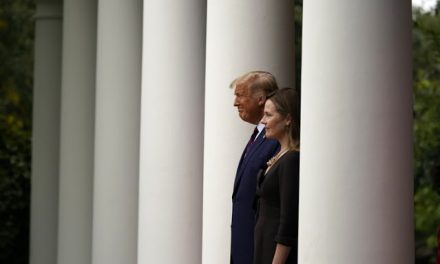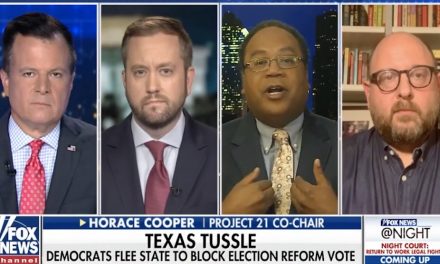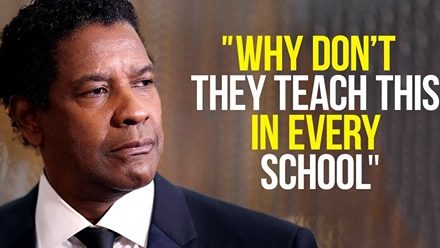LTP News Sharing:
By Tunku Varadarajan | The Wall Street Journal
Virginia Gov.-elect, Glen Youngkin talks with Lieutenant Gov.-elect Winsome Sears at the Virginia Capitol in Richmond, Va., Dec. 16, 2021. – PHOTO: STEVE HELBER/ASSOCIATED PRESS
America hasn’t always been perfect, says Virginia’s lieutenant governor-elect, but it isn’t 1963 anymore.
You don’t need a doctorate in futurology to be convinced that when Republican Glenn Youngkin is sworn in as governor of Virginia next Saturday, he’ll take his oath alongside someone who could likely be, four years hence, the first black woman elected chief executive of an American state.
The woman in question is Winsome Sears, Virginia’s lieutenant governor-elect and Mr. Youngkin’s running mate in the Republican sweep of the state’s highest offices in November. (A third Republican, Jason Miyares, won election as attorney general.) Virginia’s Constitution bars consecutive gubernatorial terms, and should Mr. Youngkin prove a success in office, Ms. Sears would be nearly certain to secure the Republican nomination for 2025. Mr. Miyares would also be a contender to succeed Mr. Youngkin as governor, but he’s a decade younger than Ms. Sears and will likely have to wait his turn.
Born in Jamaica’s capital, Kingston, some months after her father emigrated to New York in 1963, Ms. Sears is quick to acknowledge a political debt to her native island, from which she, too, emigrated as a child. She claims descent from Nanny of the Maroons, an 18th-century leader of runaway slaves who fought Jamaica’s British rulers in a guerrilla war. “Nanny was an African princess, and my mother comes from those people,” Ms. Sears tells me from her home outside Winchester, Va. Less dramatically, she ascribes her own political confidence—and her belief that there are “no limits to what black people can achieve”—to her quotidian experience of Jamaica, where “the generals are black, the lawyers are black, the doctors are black, the Rhodes scholars are black.”
As a child in third grade in New York, she noticed how much worse her schooling was compared with that of her cousins of the same age in Jamaica. “I was spelling words like ‘this’ and ‘where,’ and they were spelling ‘acknowledgment’ and ‘accomplishment’—and knew exactly what those words meant.” This was the first of her many revelations about black underachievement in the U.S., which have instilled in her a fierce contempt for an overly politicized educational establishment as well as an adamant belief in school choice.
Ms. Sears recounts how she was buttonholed at a gospel concert recently by an 83-year-old black man, a lifelong Democrat. She says he told her, “I have never voted for Republicans, but this year I decided that I could.” The reason, she tells me, was “education, education all the way.” Voters like this man “know our children aren’t learning, that 84% of our children, by the time they reach the eighth grade, can’t do math.” She portrays school choice in terms of class: It’s available, she says, for the rich, but not for the poor. “The money in education follows the brick building, it doesn’t follow the child,” she says. “I don’t care about the brick building. I care about the human life. We don’t get do-overs for our children.”
Education reform was a rallying cry in Mr. Youngkin’s campaign, and Ms. Sears shares his hostility toward critical race theory, a sociological credo that holds that racism shapes all important aspects of a person’s life and development. Under Gov. Ralph Northam, Mr. Youngkin’s Democratic predecessor, teaching of the theory had begun, inexorably, to filter into Virginia’s schools.
But Mr. Youngkin has promised to curb critical race theory. Ms. Sears laughs at the idea that America is racist. “Look, we must teach the good, the bad and the ugly of history,” she says. “America certainly has not been all that she should have been, but she’s getting there. It’s not 1963!” Even in those oppressive days, she adds, “black people found ways to excel despite the problems they faced.” Yet today, “when we’ve had a black president elected not once but twice, black secretaries of state, and black billionaires,” Democrats tell us “there’s nothing we can do to better ourselves,” and that “we should let them take care of us.” She acknowledges that the Republican Party hasn’t done nearly enough to appeal to black voters, but believes schooling can be its trump card. “Education is our entrée, because, mama bears and papa bears, we’re looking out for our children.”
Ms. Sears can’t resist a last reference to Jamaica, where, she says, you can’t tell a person’s politics until you sit with him and talk. It’s the same with white people in the U.S. “If I see a white person walking down the street, I don’t know if he’s libertarian, Reform Party, Green Party, Republican, Democrat.” But if you see a black person pass by you, “you immediately say, ‘Democrat!’ ”
“That’s no political power at all. And we aim to change that.”
Mr. Varadarajan, a Journal contributor, is a fellow at the American Enterprise Institute and at New York University Law School’s Classical Liberal Institute.
https://www.wsj.com/articles/winsome-sears-education-key-black-success-virginia-governor-charter-school-choice-crt-critical-race-theory-11641574129?mod=opinion_lead_pos7
Author: Frances Rice






